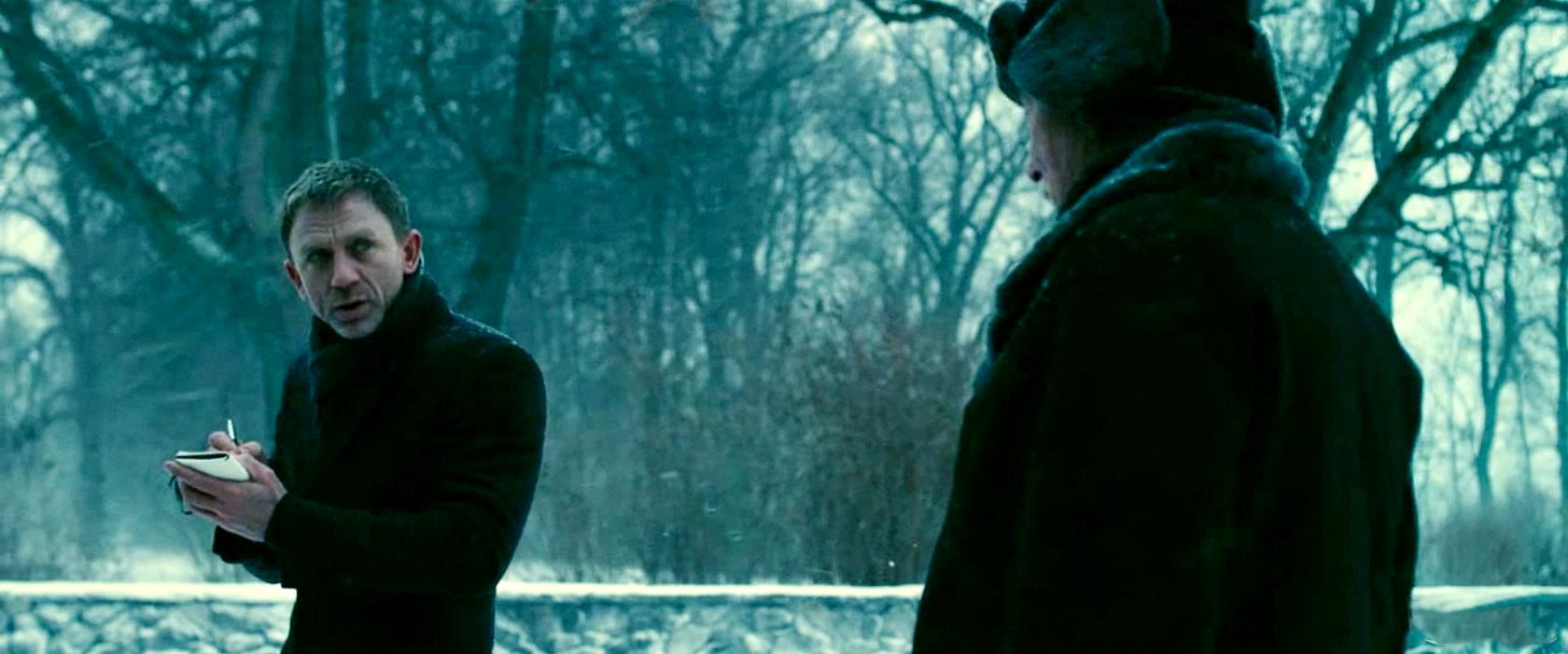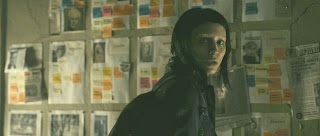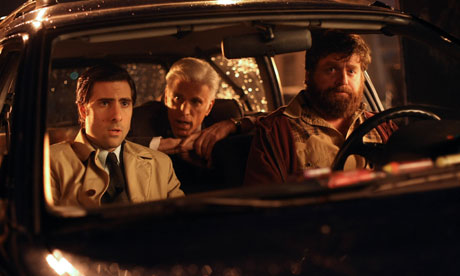Most filmmakers forget the importance of opening credits. They usually serve to say who made the movie, but they never tell a story of their own. David Fincher never fails to make mind blowing openings. Think of the neurons and brain passages at the beginning of “Fight Club.” When the opening credits for “The Girl with the Dragon Tattoo” finish rolling, you’ll have learned everything you need to know about Lisbeth Salander (Rooney Mara) without even knowing it. It is the intersection of a brilliant filmmaker with a brilliant technological mind, just as Lisbeth is the intersection of a brilliant investigator with a brilliant hacker mind. Welcome to a Sweden without rules.
“The Girl with the Dragon Tattoo” is a thriller that utilizes everything a movie has at its disposal (camera, lighting, music, etc.) to the fullest extent, and thus pulls off the year’s most fully realized motion picture. “The Girl with the Dragon Tattoo” is a triumph of everything. Like its incredibly complex narrative, one piece of the production would not fit in without another.
To outline the entire mystery would take up too much time. To simplify it all would be too hard. However, I’ll do my best to sum it all up. The movie begins after Mikael Blomkvist (Daniel Craig), a journalist from Stockholm, is convicted for ethics violations based on his story on banker Wennerstrom (Ulf Frieberg, who looks eerily similar to Julian Assange). The trial costs him both his reputation and his life savings. Escape comes in the form of wealthy patriarch Henrik Vanger (Christopher Plummer) who wants to hire Mikael to investigate his own family.

Vanger brings Mikael to his home, which is chillier and more isolated than even The Overlook Hotel. Vanger asks Mikael to find his missing niece Harriet, whom he believes was murdered 40 years prior. In his long, tedious investigation, Mikael finds a family that is even more deranged than the average dysfunctional family. Neo-Nazis may be the least of his problems.
Mikael has a great researcher’s mind, but there is something about him, he is submissive and subdued; he can find pieces of the puzzle but he can’t fit them all together. That’s where Lisbeth comes in. Lisbeth is the wunderkind hacker who performed Mikael’s background check for Henrik, and she is hired again to aid in the case. While Lisbeth has a brilliant mind, she is deemed a sociopath by society. While she is an outsider, like God’s lonely woman, she can find out any bit of information on any person by simply clicking a button on her computer. If all of a director’s movies and characters are supposed to exist in the same universe, then she would single handily destroy Mark Zuckerberg of “The Social Network” in a hacking contest, and then probably try and kill him for that comment about comparing women to farm animals.
There is something about being considered the lowest common denominator in society that makes someone able to get away with anything, which is what makes Lisbeth such an effective detective. Thanks to all of her piercings, her distinctive hairstyle, and the tattoo on her back that gives the movie its title, Lisbeth Salander is the year’s most unforgettable movie character.

Mikael and Lisbeth make a great team, as they both serve as each other’s foils. Mikael is a very safe and journalistic detective, while Lisbeth, who already lives above the law, is not afraid to break the rules in order to crack a case. She is the Jake Gittes to his Bob Woodward. As an abused woman herself, and through her actions, Lisbeth serves almost as both a protector and a crusader of the independence of all women. It is no wonder this case takes on special interest to her, as it involves catching a killer of women.
Craig delivers a stone-faced performance as Mikael Blomkvist. However, he is not quite an action hero here, he is more of a civilian, and his fear in the face of danger is not like the Bond we’ve seen him as. While I sometimes had trouble believing that he was Swedish, his timing in certain situations makes me believe that he would make a great comedic actor.
Mara, meanwhile, delivers a flawless performance that will merit her an Oscar nomination, if not a win. It is a stunning transformation from her role as sweet Erica Albright in “The Social Network.” Here, she creates an indelible performance using silence and actions over words. For what she goes through at the beginning of the film and everything she must bare, this is a brave performance. The way she responds to her rapes is that of someone who is both hardened and incredibly emotionally scarred. Mara brings out both features in the character throughout, making Lisbeth feel more heroic than sociopathic to me.

The movie’s final shot, showing her riding off on her motorcycle alone while everyone else around her is warm in the Swedish winter with company, evoked the endings of so many great westerns to me. In this day and age, the hacker is America’s new outlaw, and she is the queen of the new age isolated cowboy. The ending is not so much a plot cliffhanger as a character one. I cannot wait to see the next movie not just because of the story, but because I will get to see more of these characters, learn more about them, and spend more time a part of their lives.
It is hard to take a novel that is already so popular on its own and make it a unique movie. I admit I have yet to read any of Stieg Larson’s Millenium Trilogy, but I plan to pick up the novel version of “The Girl with the Dragon Tattoo” as soon as possible. Fincher shows that there was a reason to adapt this novel to the screen. It is not just some regurgitation. While the movie perhaps moves a little too fast towards the end, it is only for the reason of fitting in as much of Larson’s original story into the first movie as possible.
The atmosphere created by the film is a master class example of how to turn setting into a character, and how to use it to build suspense that holds for over two and a half hours. The snowy landscapes, combined with Trent Reznor and Atticus Ross’s mood building score, which begins with Karen O’s shrieking cover of Led Zeppelin’s “The Immigrant Song,” will leave you a state of panic and thrill for the entire running time. Hitchcock would have been proud.
The team behind this movie, Fincher, Reznor, Ross, writer Steve Zallian, and producer Scott Rudin, is the best new team of mainstream movies in Hollywood. All of their efforts makes “The Girl with the Dragon Tattoo” come together so spectacularly. It is always a great team, and not just one mind, that can make a truly great movie complete. And the series can only get better from here. Few movies nowadays have the ability to be shocking and controversial. However, “The Girl with the Dragon Tattoo” steps it up another level, and earns its R-rating. And it wears that badge with pride.















